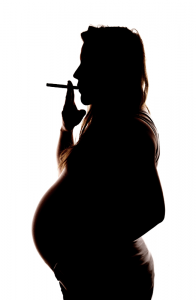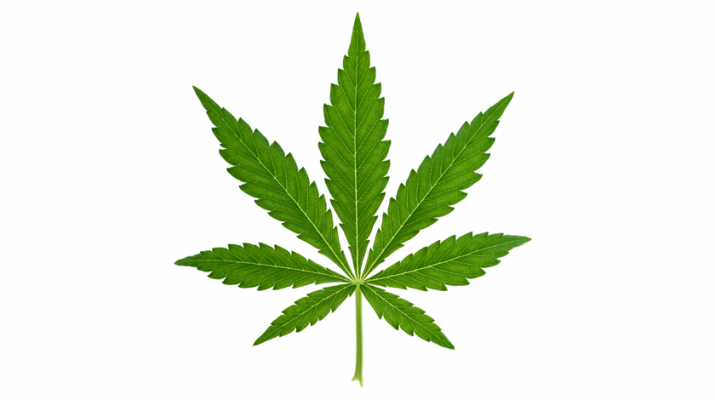By Deborah Jeanne Sergeant
 Despite years of hearing the message that substance abuse during pregnancy can harm babies, the number of women smoking marijuana while pregnant is increasing, according to a December 2017 article in Journal of the American Medical Association.
Despite years of hearing the message that substance abuse during pregnancy can harm babies, the number of women smoking marijuana while pregnant is increasing, according to a December 2017 article in Journal of the American Medical Association.
“Marijuana is the most commonly used illicit drug during pregnancy, and its use is increasing,” wrote the article’s author, Kelly C. Young-Wolff, Ph.D., of Kaiser Permanente Northern California.
“From 2002 to 2014, the prevalence of self-reported, past-month marijuana use among U.S. adult pregnant women increased from 2.4 percent to 3.9 percent. In aggregated 2002-2012 data, 14.6 percent of U.S. pregnant adolescents reported past-month use. However, studies are limited to self-reported surveys and likely underestimate use due to social desirability bias and underreporting, leaving the scope of the problem unclear.”
The study included 279,457 pregnant women in California.
Exact figures on how many pregnant women smoke marijuana are difficult to obtain, since admitting pot smoking may attract unwanted attention from law enforcement and, for mothers, child protective services.
Several factors play into the uptick in marijuana use among pregnant women, according to the article. Marijuana isn’t viewed as a “bad” drug, especially in light of its increasing legalization. Eight states have legalized recreational marijuana and many more, including New York, have legalized it only for different levels of medical use.
Natural approaches to health have been increasing in popularity. Some people turn to marijuana to combat pain, nausea, depression and anxiety instead of prescription medication or other remedies. Some of these symptoms are often associated with pregnancy.
Physician Vanessa Barnabei, PhD., serves as president and CEO of UBMD Obstetrics-Gynecology and chairwoman of the department of obstetrics and gynecology at Jacobs School of Medicine & Biomedical Sciences.
“There are data that suggest that especially in heavier marijuana smokers, rate of miscarriage and stillbirth is higher,” Barnabei said. “When you look at data from National Institutes of Health or Centers for Disease Control and Prevention, some suggest longer term development abnormalities from moms who smoked marijuana. It’s difficult to tease out the data because of so much variability. It’s a challenging thing to study.”
She added that it doesn’t appear that marijuana affects intelligence, but that there’s a correlation with behavioral differences and a greater likelihood of substance abuse later in life.
“We don’t really know the absolute effects on a developing brain,” Barnabei said. “A lot of people don’t think that far ahead in the midst of a pregnancy.”
She said that most patients who smoke marijuana quit once they learn they’re pregnant. Marijuana isn’t as addictive as tobacco, alcohol or “hard” drugs, so quitting doesn’t challenge patients much. It’s more about education.
That’s why organizations like Niagara County Department of Health are working to help women understand that marijuana can have negative effects on their babies. Theresa McCabe is the public health educator for the environmental health division of the Niagara County Department of Health.
She said that the American College of Obstetrics and Gynecology (ACOG) recommends pregnant women avoiding using drugs, including hallucinogenic drugs. Marijuana contains tetrahydrocannabinol (THC), which causes its hallucinogenic effects.
“It can affect the respiratory and nervous system,” McCabe said, among other effects.
ACOG states that maternal marijuana use is associated with children experiencing lower test scores, visual problem solving ability, visual motor coordination and disruptive behavior.
Marijuana is more potent than ever. Today’s marijuana can be as high as 37 percent THC, compared with the 1 to 3 percent average in the 1970s. Since it’s sold illegally and non-regulated for recreational use in New York, users have no idea what’s really in the marijuana they purchase.
Using a non-incendiary “vape” device to get high can also bring additional problems, since they expose the mother and subsequently the baby to nickel, lead and formaldehyde. Little research exists on the effects of vaping marijuana during pregnancy because of the relative novelty of vaping and the ethics behind exposing babies to its known harmful effects.
McCabe encourages moms to ask their doctors for resources to help them stop using drugs and to address underlying issues if they use them to self-medicate for other issues.
“After the baby is born, any use of marijuana or opiates can cause withdrawal,” McCabe said. “Babies may go to a special nursery and CPS [Child Protective Services] may be involved. The baby will need to be monitored for neurological withdrawal.”
Some mothers may believe that light use of marijuana is okay; however McCabe said that “even occasional is not recommended.”
“We try to encourage them to stop and refer them to ancillary services,” McCabe said.

